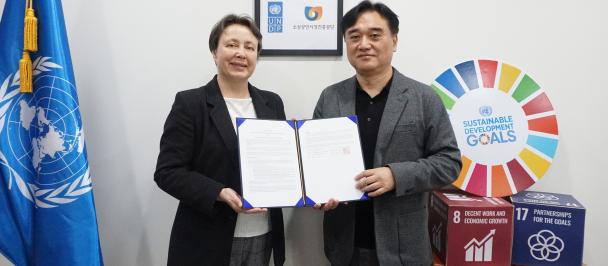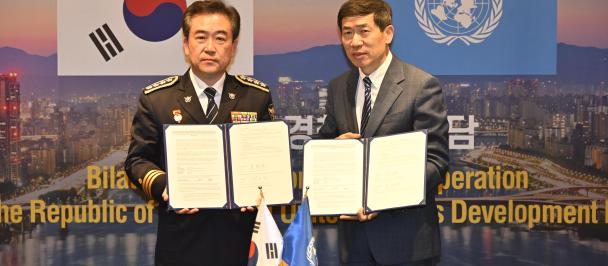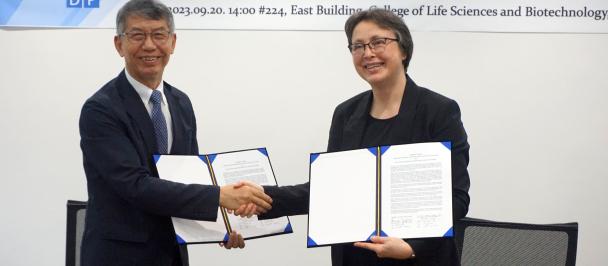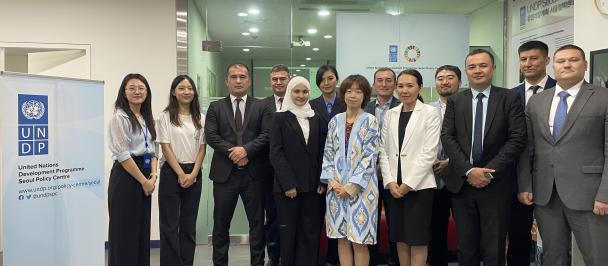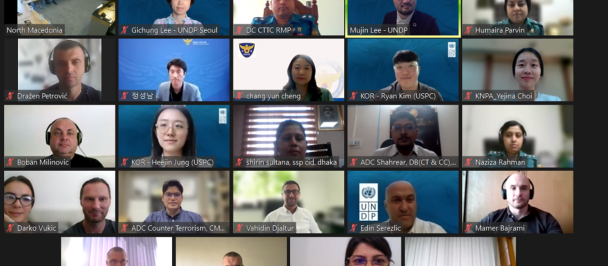Knowledge Exchange for improvement of national police response to SGBV in the Democratic Republic of Congo
April 15, 2022
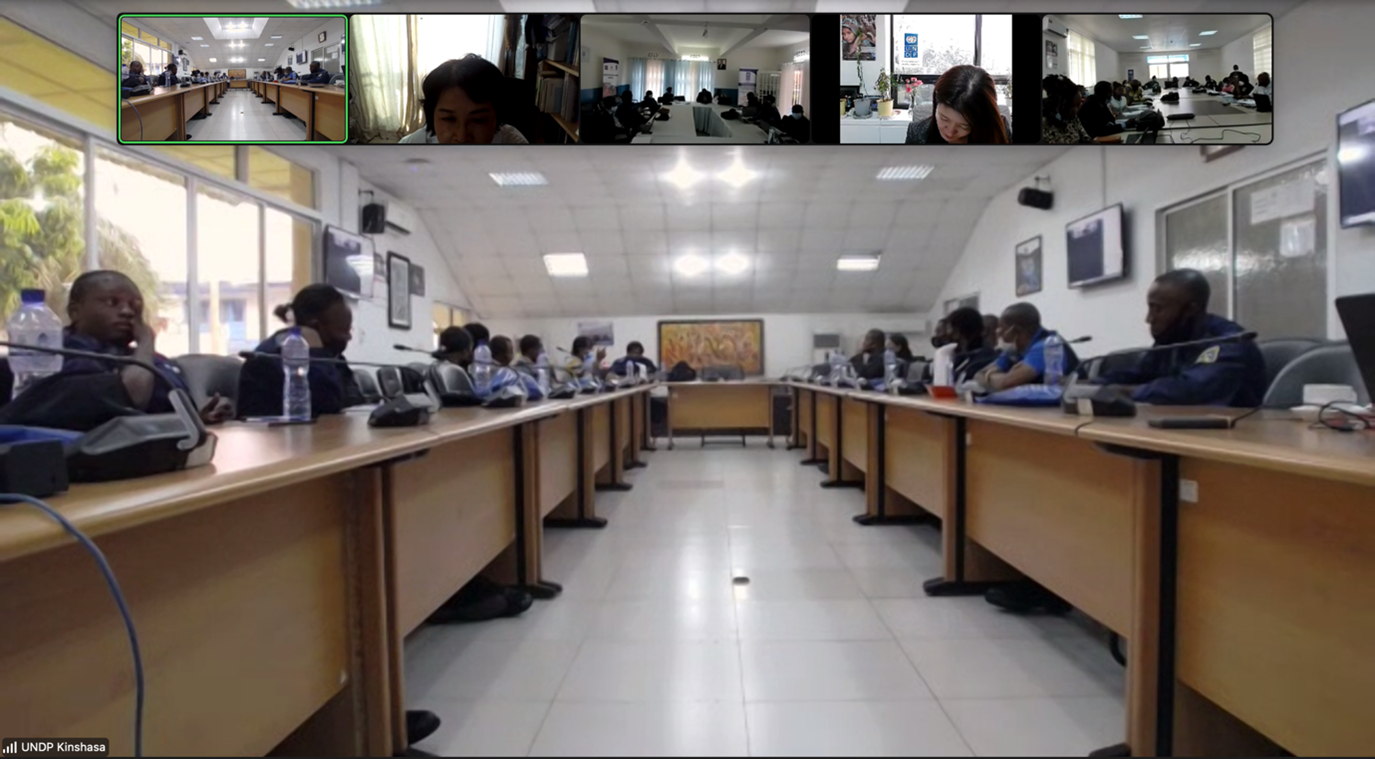
UNDP Democratic Republic of Congo (DRC) and UNDP Seoul Policy Centre (USPC) convened a knowledge-sharing workshop to improve the response of the National Police to sexual and gender-based violence (SGBV) in DRC on 21-22 March 2022 as part of USPC’s SDG Partnership.
Since 2019, USPC and the Government of DRC have been working together via UNDP DRC to establish a One-Stop Centre for SGBV survivors and strengthen the capacities of the National Police in responding to SGBV cases. While DRC has been committed to working towards protecting women and girls from SGBV including early marriage and domestic and sexual violence, challenges remain in collecting and preserving evidence of the violence through police investigations.
In this regard, the workshop aimed at sharing the knowledge and experience of Sunflower Centers, which are One-Stop Service Centres in the Republic of Korea (RoK) that provide holistic support to SGBV victims with engagement of the Korean Police. Special focus was on how to coordinate police response within the integrative services provided to SGBV survivors and to prevent secondary victimization during investigations.
Dr. Anne Juepner, Acting Director at USPC, expressed her wish to “see holistic and survivor-centered services for GBV victims to sustain through sensitization, protocol development, and training,” based on the lessons learned from the Seoul Sunflower Center.
Mr. Joseph Oji , Adviser for Programme Quality Assurance Unit at UNDP DRC, emphasized that “it is imperative to note that we must all get involved in order to stop this problem [of SGBV], which is increasingly becoming an obstacle to the achievement of sustainable development objectives.”
Colonel Mimi Bikela, Kinshasa City Squadron Commander, Child Protection and GBV Prevention Squadron of Congolese National Police, highlighted that “raising the awareness of the Congolese National Police to support victims, applying the principles of minimum standards in response to GBV in their daily work, and providing effective and practical support to initiate legal proceedings, in collaboration with legal aid mechanisms” are essential.
Ms. Hyeyoung Park, Former Associate Director of Seoul Sunflower Center, spoke on lessons learned from the Center’s holistic care system for SGBV survivors. Focusing on how to conduct investigations and collect evidence without secondary victimization, Ms. Park first elaborated on the roles and responsibilities of the police in conducting confidential investigation with high-quality recordings. She also highlighted the legal and institutional background for effective inspection of SGBV cases. Ms. Park summed up her lecture by introducing several training tools provided for police capacity building in SGBV investigations.
The two-day workshop ended with an interactive Q&A session joined by the officers of Congolese National Police, legal professionals, and NGOs from DRC. The questions further explored the differences between Congolese and Korean legal procedures for SGBV cases and how to better support SGBV victims within the current holistic support system both in RoK and DRC.
In closing, Ms. Ahjung Lee, Governance Portfolio Manager at USPC, Ms. Anastasie Manzanga, Coordinator of Governance and Peace Consolidation Unit, and the representatives from Kinshasa, South Kivu, and Kasai Central reiterated the importance of institutional strengthening and professional training for effective SGBV response and supported further development of SGBV expertise within the Congolese National Police.
Resource
* USPC shares Korea's tested-and-proven policy tools with other countries through SDG Partnerships. As part of this effort, since 2017, USPC has been working with the Korean Police, Ministry of Gender Equality and Family, and Sunflower Centers to share their knowledge and experience in responding to SGBV with partner countries around the world.

 Locations
Locations